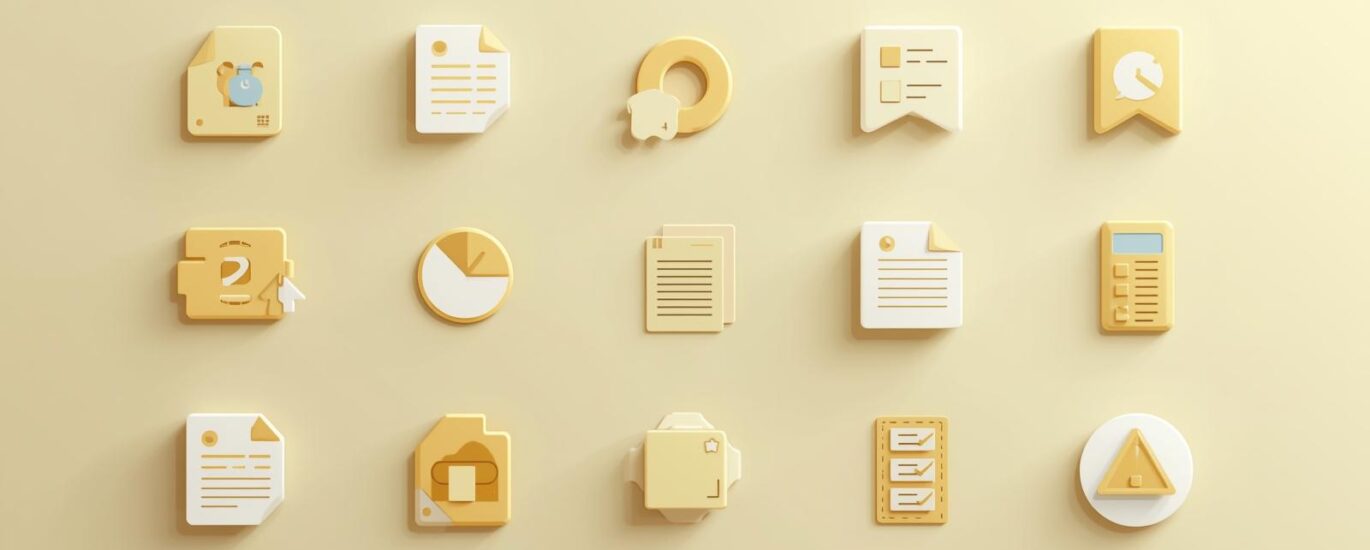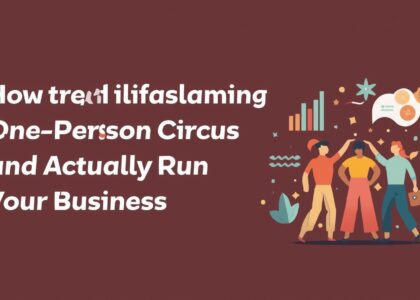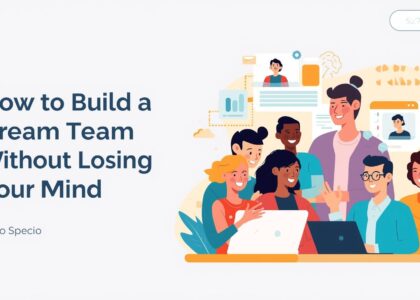Can we talk about the environment for a bit? Yes… please, because it’s literally dying to be talked about. And no, that’s not dramatic. It’s just science with a side of existential dread.
So, here comes technology in all of its shiny, chrome-plated glory, making our lives easier and us progressively lazier. We’ve gone from hunter-gatherers to door-dash-orderers in record evolutionary time. Technology is out here doing the absolute most: making it harder for couples to stay faithful to each other (because apparently sliding into DMs is an Olympic sport now), while simultaneously making long-distance relationships a little more bearable. Or should I say unbearably monotonous with the daily “Hi, so how was your day today?” Every. Single. Day. Like some sort of digital Groundhog Day, except Bill Murray isn’t there to make it entertaining.
On the upside, technology has made a few creative couples discover awesome fun things they can do together online: Netflix Party, online gaming, virtual escape rooms, and… well, let’s keep this PG-13.
PS: No shade on long-distance relationships. I don’t know anything about relationships to start with (my longest commitment is to my phone’s screen time), so let’s just get back to the environment before I embarrass myself further.
The Great Green Washing Festival
So yeah, the environment is pretty bummed out because of technology, and all these green conferences don’t seem to be helping much. You know the ones, where people fly in on private jets to discuss carbon footprints while sipping overpriced organic kombucha from single. Use plastic cups. The irony is so thick you could cut it with a biodegradable knife (which doesn’t exist because let’s be honest, nobody’s invented one that actually works).
Everyone pretends to care about the environment. We’ve all become professional tree-huggers on social media. “Look at me with my reusable coffee cup! #SaveThePlanet #EcoWarrior #LivingMyBestSustainableLife” they post, right before ordering fast fashion from a website that delivers in seventeen layers of non-recyclable packaging.
But “Kwa ground… vitu ni different” as they say. (Translation for the non-Swahili speakers: On the ground, things are different. Or as we say in English: the streets tell a different story, fam.)
Meet Kenya’s Actual Superhero (No Cape Required)
“She’s been physically attacked multiple times and is constantly threatened. She says she’s been arrested on five different occasions, but never convicted. Her colleagues’ lives have also been threatened, their homes broken into or burned,” as reported by Deborah Bloom for CNN International.
Sounds like the life of a drug lord, right? Maybe a character from Narcos: Nairobi Edition?
Plot twist: This is actually the life of Phyllis Omido, an environmental activist whose work has led to the shutting down of 10 toxic waste smelters in Kenya as of 2018. While most of us are out here complaining about slow WiFi, this woman is literally battling industrial giants and winning. She’s basically the Kenyan Erin Brockovich, except the movie hasn’t been made yet (Hollywood, you listening?).
Phyllis has spent over a decade visiting the Owino Uhuru village, documenting the various illnesses, deaths, and miscarriages that have occurred since a nearby smelter contaminated the village’s air and water with lead. You know, just casual toxic heavy metal poisoning ruining entire communities while the rest of us worry about whether our avocado toast is Instagram-worthy enough.
Let that sink in: children being poisoned by lead while playing in their own backyards. Not in some dystopian novel. Right here. Right now.
“We Can’t Breathe” (And No, Not Like That)
In July 2020, Enock Sikolia released a documentary about Syokimau called “We Can’t Breathe.” A little too dramatic, you might think? I would say it’s right on the money. More accurate than your weather app, actually.
Think about this: What do you do when you walk past a garbage pile that’s being burnt, filling the air with choking smoke that smells like Satan’s barbecue? You hold your breath till you’re past it, right? You walk a little faster, maybe cover your nose with your shirt like you’re in a budget action movie.
Now imagine living there. Not walking past. Not having the luxury of holding your breath for 30 seconds and moving on with your day. Imagine every breath you take being a calculated risk. Imagine your children’s lungs developing in that air. Imagine wondering if today’s the day you’ll develop cancer, or if your unborn baby will have complications because you had the audacity to… breathe.
That’s not a thought experiment. That’s Tuesday for thousands of Kenyans.
When Your Playground Becomes a Poison Zone
“Since COVID-19 hit the country in March, schools have been closed and so her three children are at home; but despite Bustani Villas having a beautiful playing field, she can’t allow them to go out and their bikes have been locked,” explains a local resident of Mombasa Road, where Endmor Steel Millers have been terrorizing the air and its dependents like some sort of atmospheric villain.
Let that image marinate for a second: Children locked indoors, their bikes gathering dust, staring at a perfectly good playing field through their windows like it’s some sort of toxic museum exhibit. “Look but don’t touch, kids. The air is lava!”
Every time these kids venture outside, they get sick. Coughs. Rashes. Breathing problems. You know, just normal childhood stuff. If your childhood took place in a chemical warfare training facility. This is happening while the rest of us complain about our kids getting too much screen time. “My son is addicted to Fortnite!” Well, Karen, at least he can breathe while playing it.
A River Runs Through It (And by “It” I Mean “Toxic Sludge”)
On a less heavy note (and by “less heavy” I mean “still pretty damn heavy but with more personal anecdotes”)… I used to live in an estate in Donholm, Nairobi, with a ghetto behind it. Very Nairobi, very casual to say. Along the ghetto flowed a river, and I use the word “flowed” generously here, like calling a parking lot a “vehicle storage facility.”
This river was pitch black. Not the romantic, mysterious black of a gothic novel. More like the “dear God, what died here and why can it still move” kind of black. It stank worse than a teenager’s gym locker crossed with a fish market during a power outage in July.
My heart would ache every time I’d go for a nature walk there. And yes, I called it a “nature walk” with the optimism of someone who’s clearly in denial. It was my nearest connection to nature, but there wasn’t much nature left. Just the ghost of nature, haunting the landscape like an eco-friendly Scrooge showing us what we’ve lost.
Toxic chemicals from factories had rendered the river completely useless. The fish had long since evacuated, probably filing for refugee status in cleaner waters. Meanwhile, the poverty-stricken neighbors were scraping for coins to buy water for their daily use.
Let that irony slap you across the face: People buying water while living next to a river.
It’s like being hungry at a buffet that only serves pictures of food. It’s the universe’s cruelest joke, except nobody’s laughing.
The “Progress” Paradox
These are the markers of industrialization and technology, especially in third-world countries. We’re told this is progress. We’re told this is development. We’re told this is the price we pay for a better future.
But whose future, exactly? Not the kids who can’t play outside. Not the families buying bottled water while living on a riverbank. Not the mothers having miscarriages because their air and water are seasoned with lead like some sort of dystopian spice blend.
The technology we’re all addicted to. Our smartphones, our laptops, our smart fridges that can apparently order milk but can’t seem to fix the environment. Comes at a cost. And spoiler alert: we’re not the ones paying it. At least not yet. Not in the same way.
We’re over here worried about our phone batteries dying while actual humans are dying from breathing air near factories that make the components for those very phones. The circle of life, except it’s more of a doom spiral with really good Wi-Fi.
So What Now?
Here’s where I’m supposed to give you five easy tips to save the planet, right? Tell you to use metal straws (while ignoring that metal straw production also has environmental costs), switch to bamboo toothbrushes (even though you’ll probably still buy seventeen other plastic things this week), and call it a day?
Nah.
The truth is, individual action matters, but it’s not enough. Not even close. We need systemic change. We need governments to actually enforce environmental regulations instead of accepting bribes disguised as “development funds.” We need corporations to be held accountable for their pollution instead of being allowed to poison communities and then gaslight them about it.
We need more people like Phyllis Omido. People willing to fight, to document, to speak up even when it’s dangerous. And we need to support them, amplify their voices, and maybe, just maybe, get as angry about environmental destruction as we do about our favorite show being canceled.
Because right now? The environment is that friend trying to tell you something important, but we keep checking our phones and saying “uh-huh, that’s crazy” without actually listening.
And at some point, that friend is going to stop calling.
Actually, scratch that. It’s already stopped calling. It’s sending emergency flares now, and we’re over here like, “Ooh, pretty lights!”
The Bottom Line
Technology isn’t inherently evil. Industrialization isn’t inherently evil. Progress isn’t inherently evil.
But progress that poisons children? That forces people to buy water while living next to a river? That requires environmental activists to risk their lives just to say “hey, maybe don’t kill us with toxic fumes”?
That’s not progress. That’s just evil with better PR.
So yeah, let’s talk about the environment. Let’s talk about it loudly, persistently, and inconveniently, because it’s literally dying to be talked about.
And this time, let’s actually listen.
Written while charging my phone and feeling appropriately hypocritical. But hey, at least I'm self-aware about it. That counts for something, right? Right?
...Right?




This a wonderful read! I love it!